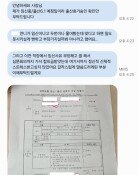Gov't should develop insightful crisis management
Gov't should develop insightful crisis management
Posted December. 30, 2016 07:02,
Updated December. 30, 2016 07:31
At an economic ministerial meeting hosted by Acting President Hwang Gyo-ahn on Thursday, the government downgraded next year's economic growth forecast to 2.6 percent, 0.4 percentage points lower than the previous outlook of 3 percent, which was released in June. The growth outlook for a following year has been forecast at 2 percent range, which is the first time in 18 months since 1999 immediately after the financial crisis. If it goes as predicted, the year 2017 would see three consecutive years of low economic growth at the range of 2 percent since 2015. Given economic and political uncertainties caused by presidential impeachment, it is even questionable whether 2.6 percent growth for the next year is possible.
In an effort to respond complex economic conundrums caused by sluggish consumption, investment, export and job opportunities, and global protectionism, the Ministry of Strategy and Finance revealed that it would implement an aggressive economic boosting policy from early next year. It also plans to reinforce financial sources of 21 trillion Korean won (approx. 17.4 billion U.S. dollars) through early fiscal execution of central and local governments, investment in public institutions and expansion of policy finance, and bring up the fiscal execution rate of the first quarter to the highest level of 31 percent. The expected effect of economic stimulus plan, however, is meant to be limited. While some say that it is inevitable to come up with a revised supplementary budget during the first half of the year, we must be vigilant not to be addicted to using supplementary budget. Now that Washington has raised its interest rates, it is difficult to bring down domestic interest, meaning that economic revitalization through fiscal and financial policy would have only limited effect.
The announcement of policy direction came out some two weeks later than usual amid national confusion due to presidential impeachment and deputy prime minister for economic affairs, but it turned out to be lacking innovative measures that would restore the economy through drastic deregulation and abolition of entry barrier. Many of the policies were in fact the rehash of the previous ones. The government is not the only one to be blamed for challenging economic revitalization through deregulation and structural reform. If the Basic Law on Service Industry Development, the Special Act on Regulation-Free Zone and Labor reform bills are passed in the National Assembly, it would be of great help for increased consumption and investment confidence. In reality, however, no progress is being made at all. It is disappointing that the business plan for cable car in Mt. Seorak applied by Yangyang County in Gangwon Province was turned down due to disapproval by the Cultural Properties Committee under the Cultural Heritage Administration. It is quite contrasting that many countries such as the U.S., Switzerland, China and Japan are operating cable cars in their mountains to promote the tourism industry.
Next year marks the 20th year since the financial crisis that hit Korea in 1997. As many economic indicators are turning for the worse, reforms in labor and industrial structure are going adrift while political populism up for the presidential election is in full swing, all of which is similar to what happened in 1997. Combined with unfavorable conditions from overseas, we cannot exclude the possibility that the 2nd national economic crisis would hit us all again.
With Acting President Hwang and Deputy Prime Minister for Economic Affairs Yoo Il-ho at the center, the government should make its all-out effort to bring up the possible growth rate and manage the possible crisis. Given its economic structure vulnerable to overseas factors, Korea should have enough foreign exchange reserve as it is the last resort in the event of overseas financial crisis. Resuming or extending the currency swap with key nations such as the U.S., Japan, China, and preventing foreign investors from leaving Korean market, even the slightest negligence would not be allowed in economic diplomacy.
shkwon@donga.com
Headline News
- N. Korea launches cyberattacks on S. Korea's defense companies
- Major university hospital professors consider a day off each week
- Italy suffers from fiscal deficits from ‘Super Bonus’ scheme
- Inter Milan secures 20th Serie A title, surpassing AC Milan
- Ruling and opposition prioritize spending amid tax revenue shortfalls







